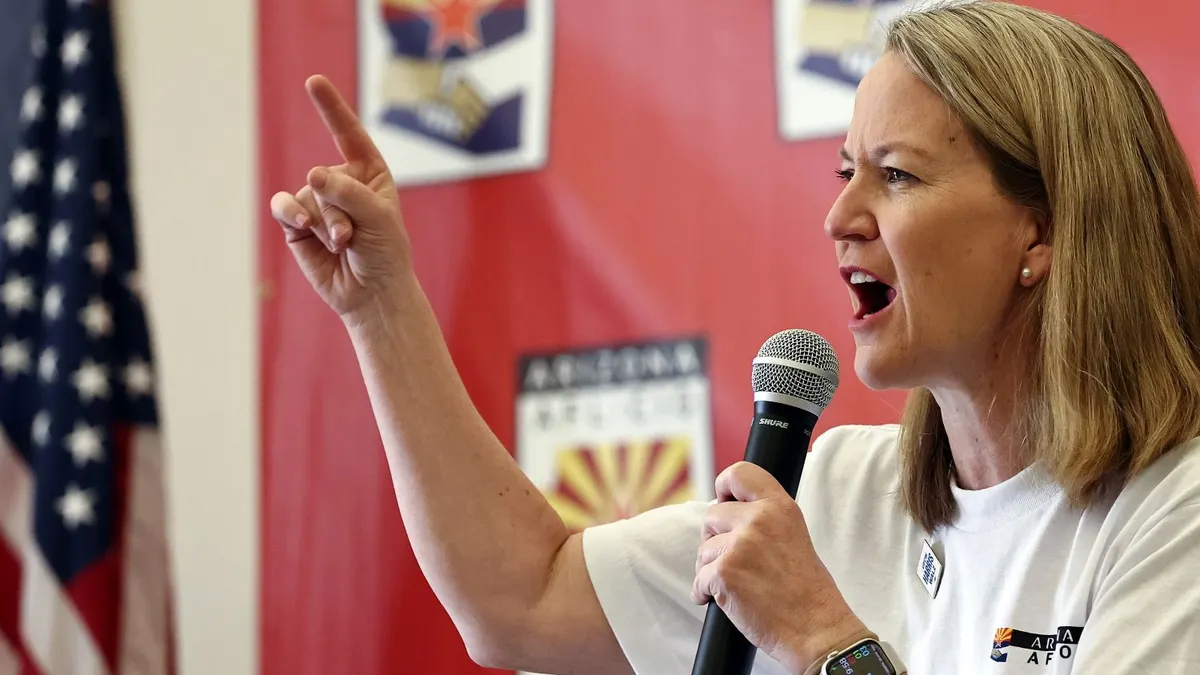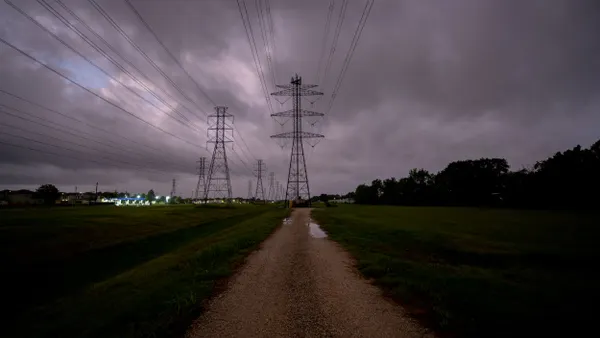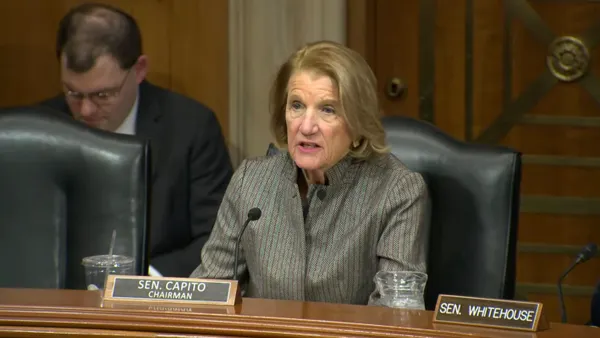Dive Brief:
- Arizona Attorney General Kris Mayes said her office will oppose a 14% rate hike proposed by the state’s largest electric utility, and it could ask state regulators to decrease the rates Arizona Public Service customers pay.
- Arizona residents “deserve a power system that is reliable, equitable and resilient — but not one where a monopoly utility profits on the backs of struggling families, and that's what I think is going on here,” Mayes said in an interview.
- If approved by the Arizona Corporation Commission, the rate increase would be APS’ fourth in a decade. Mayes, a former ACC commissioner, said it could take a year for regulators to reach a decision.
Dive Insight:
Arizona regulators on Monday granted intervenor status in APS’ rate case to the state of Arizona, represented by Mayes’ office, and other consumer advocates including Vote Solar and the Arizona Public Interest Research Group Education Fund.
APS filed its proposal in June, requesting an overall net customer rate increase of $579.5 million. Power demand is rising quickly in APS’ territory, and the utility said the rate hike would support system upgrades including substation and grid technology improvements, vegetation management programs, the installation of smart grid technology, improvements to the Palo Verde Generating Station and Redhawk Power Plant, an expansion of battery storage resources and increased investment in physical security and cybersecurity.
APS, in an emailed statement, said the proposal was “prompted by current rates not keeping pace with what it costs to operate a grid that provides the reliable, resilient energy,” noting that “the cost of some transformers, a critical component of providing energy to homes and businesses, is 64% higher now than when our current rates were set.”
PIRG Executive Director Diane Brown said APS deserves cost recovery for just and reasonable expenses, but “a proposed return on equity of over 10% is both unjust and unreasonable.”
APS proposed an ROE of 10.7% in its application. According to S&P Global, U.S. electric utilities with rate cases decided in 2023 saw an average ROE of 9.6%.
“If adopted as proposed, APS’ application to increase their ROE, utilize formula rates, increase base rates, and increase the monthly service charge would escalate and perpetuate the last decade of rate cases and adjustors that have largely contributed to oversized shareholder benefits and higher year-after-year utility bills that too many ratepayers find challenging to pay,” Brown said in an email.
APS’ formula rate proposal would allow it to make annual adjustments to rates based on its authorized return on equity, “with robust mechanisms to prevent overearning,” the utility told regulators. The proposal aims to “reduce regulatory lag” and “ensure a more seamless and timely customer experience associated with adjustments in the company's rates.”
Mayes said her office will oppose the formula rate proposal as well as the rate hike.
“It leads to abuses, and it leads to fewer checks and balances on the utilities and fewer opportunities for consumers to oppose the rate increases that are being passed on to them,” Mayes said.
APS previously increased rates by 8% in 2024, 8% in 2023 and 4.5% in 2017, according to Mayes’ office. The utility’s parent company, Pinnacle West, recorded profits in excess of $600 million last year, she said.
“I think it's just outrageous, and I'm going to do everything I can to try to stop it,” Mayes said. “We are seeing growth in Arizona. But I will tell you, as a former utility commissioner, that doesn't necessarily mean that [APS] can prove that they need this rate increase.”
APS said its previous rate case was filed in October 2022 using costs from July 2021 through June 2022 and was approved by the ACC in February 2024. “Rates went into effect shortly after the decision. Prior to that, APS rates had stayed relatively flat since 2018,” the utility said.
Mayes, however, floated the idea that rather than increasing rates, the case could wind up lowering them.
"A utility takes risk when they come in for a rate increase request ... that the evidence could show that it is actually earning too much money, and the utility commission could order a decrease in its rates,” Mayes said. “And that may very well be the position that we take here.”
Mayes also said, however, that she is realistic.
“This commission seems to be quite friendly to the utilities and has been bending over backwards for them. So I'm not sure I'm expecting that to happen,” she said.
APS said it looks forward to “demonstrating the importance of our investments” and ensuring the utility “has the resources necessary to continue serving customers with the energy they need when they need it while supporting Arizona’s growth and future energy demands.”















